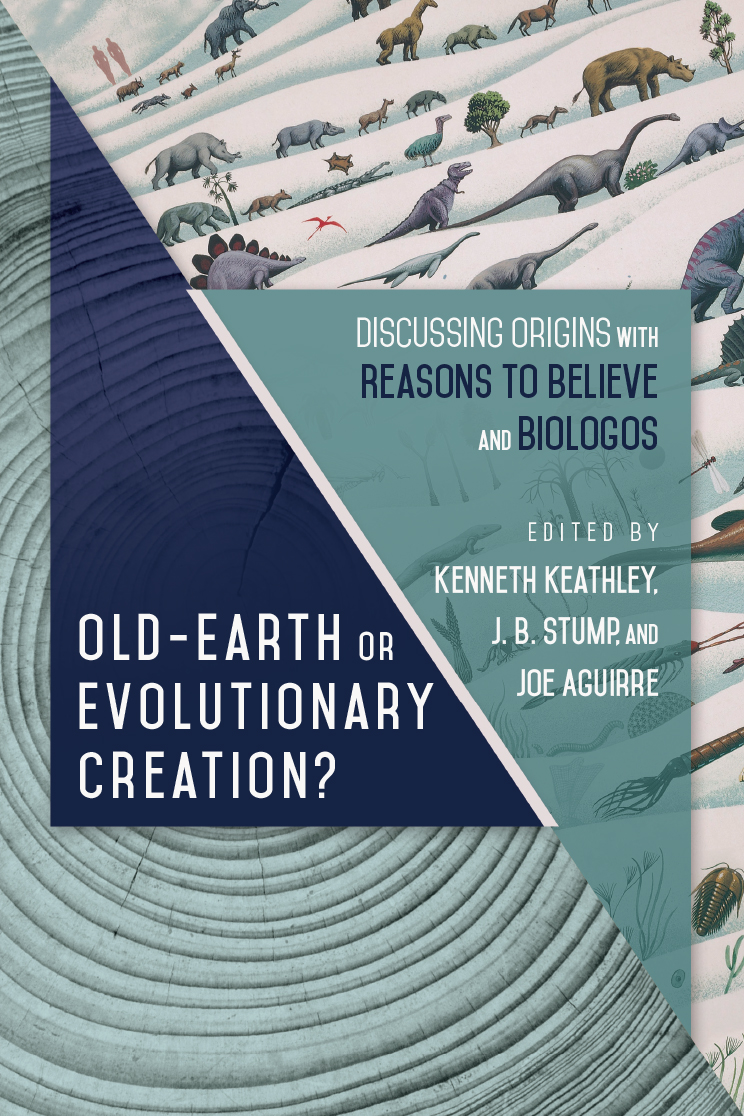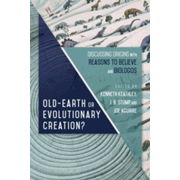While the secular world has largely adopted the materialistic evolution view in the origins debate, the range of positions is much more diverse among Christians. While there is a very strong and vocal segment that supports young-earth creationism and a literal interpretation of the book of Genesis, other Christians have adopted different positions regarding scientific discoveries and theories that align more closely with those of the larger scientific community, clearly showing that there is no clear consensus among Christians on the origins debate.
Two of the most well-known Christian organizations that accept an old age for the earth, Reasons to Believe and Biologos, represent two positions within that segment of Christianity. Even though they both accept an age of the universe that aligns with that of the secular scientific community, these two organizations hold some positions that are strongly in conflict with materialistic evolution as well as with one another in regard to both science and theology.
While both organizations have published books and articles, and both maintain informational websites, It can be difficult for outsiders to get a clear picture of their areas of agreement and disagreement. This is important because it highlights some of the most contentious issues in the origins debate. And that is what Old-Earth or Evolutionary Creation? Discussing Origins with Reasons to Believe and Biologos is about: a “gentlemanly” debate between these two organizations that highlights both their areas of agreement and disagreement.
Interestingly, Southern Baptists from New Orleans Baptist Theological Seminary and Southeaster Baptist Theological Seminary provided facilities and moderating services for this debate which seems to have extended over time and space. Representatives of the Southern Baptists serve as counterpoints to challenge both organizations regarding both the theological and scientific validity of their positions. They ask some of the questions that young-earth Christians might pose. This isn’t a thorough discussion contrasting young- and old-earth positions, but it does raise some important challenges.
Each of the book’s eleven chapters addresses one main issue. I appreciate that the first chapter asks each group to explain the views that define their organization. This sets out the context from which each of them will present views on specific topics. For each chapter one or more representatives of each group write about their position. (Eighteen different people contribute from the two organizations and from the Southern Baptist groups.) After both groups address the topic, the moderators pose a “redirect” with follow-up questions for both groups. Both groups write their responses, and the moderators sum up the chapter with a conclusion that often highlights points of contention. This method helps ensure that key questions get answered even if authors occasionally head down related rabbit trails.
Among topics addressed in the book are biblical authority and ways of interpreting the first three books of Genesis, Adam and Eve, death and suffering in relation to the fall, how God interacts with the natural world, methodological naturalism versus natural theology, the explanatory power of biological evolution, geological evidence, fossil evidence, biological evidence and common descent, and anthropological evidence.
For those interested in the origins debate, Old-Earth or Evolutionary Creation? brings many key questions to the surface, and then presents the best arguments from both organizations. Of course, those holding other positions will find still more challenges they wish had been brought up. Even so, this book helps illuminate the positions held by Biologos and Reasons to Believe, both of which remain open to ongoing challenges as scientific discoveries continue to force theories regarding life on earth to be rethought and reinterpreted.










